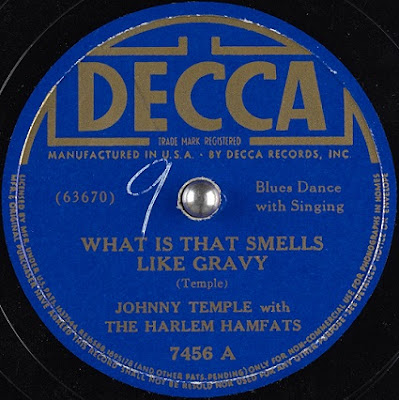"The Skye Boat Song" is a Scottish folk song, which can be played as a waltz, recalling the escape of Prince Charles Edward Stuart (Bonnie Prince Charlie) from Uist to the Isle of Skye after his defeat at the Battle of Culloden in 1746.
The lyrics were written by Sir Harold Boulton to an air collected in the 1870s by Anne Campbell MacLeod (1855–1921).
The song was first published in "Songs of the North" by Boulton and MacLeod, London, 1884, a book that went into at least fourteen editions.
In later editions MacLeod's name was dropped and the ascription "Old Highland rowing measure arranged by Malcolm Lawson" was substituted.
see page 17-21 on the next pdf download file: Songs of the North
According to Andrew Kuntz, a collector of folk music lore, MacLeod was on a trip to the isle of Skye and was being rowed over Loch Coruisk (Coire Uisg, the "Cauldron of Waters") when the rowers broke into a Gaelic rowing song "Cuachag nan Craobh" ("The Cuckoo in the Grove").
Miss MacLeod set down what she remembered of the air, with the intention of using it later in a book she was to co-author with Boulton, who later added the section with the Jacobite associations. "As a piece of modern romantic literature with traditional links it succeeded perhaps too well, for soon people began "remembering" they had learned the song in their childhood, and that the words were 'old Gaelic lines',"
In 1892 Robert Louis Stevenson wrote new lyrics for the song which were published in the collection "Songs Of Travel And Other Verses".
The version with the 1892 Stevenson-lyrics was used in the TV series "Outlander" (2014)
The version with the Boulton-lyrics was extremely popular in its day, and from its first recording by Tom Bryce in 1899, became a standard among Scottish folk and dance musicians.
(o) Tom Bryce (1899) (as "Skye Boat Song")
Recorded April 29, 1899 in London
But as noted by Lyn Nuttall, the recording date could have been a few months earlier.
Brian Rust on history of British Berliner, with discography, Talking Machine Review 63-64, Autumn 1981. He lists a batch of Tom Bryce records, 2045-2064 (all but one recorded 20-23 Sept 1898)
Released on Berliner's Gramophone E-2048-X
(c) Atherton Smith (1900's + 1904) (as "The Skye Boat Song")
Recorded 1900's in London
Released on Zonophone 12863
Also recorded in July 1904 in London
Released on Odeon 2358
(c) Mr. Andrew Black (1904) (as "Skye Boat Song")
Recorded September 17, 1904 in London
Released on Gramophone Concert Record (G&T) # G.C.-3-2162
Listen here:
(c) P.A. Hope (1911) (as "The Skye Boat Song")
Recorded August 9, 1911 in London
Released on Zonophone Records # X-2-42163 and on Zonophone Records # 705
(c) Alexander MacGregor (1924) (as "Oigh Mo Ruin (Skye Boat Song)")
Recorded March 19, 1924 in Hayes, Middlesex
Released on His Master's Voice B-1826
(c) Elder Cunningham (1927) (as "Skye Boat Song")
Recorded January 11, 1927 in London
Released on Columbia 4282
(c) Stuart Robertson (1934) (as "Skye Boat Song")
Recorded October 23, 1934 at Abbey Road Studio in London
Released on His Master's Voice B-8260
Listen here:
(c) Isobel Baillie (1946) (as "Skye Boat Song")
Recorded August 19, 1946 at Abbey Road Studio 3 in London
Released on Columbia DB-2277
Listen here: SKYE BOAT SONG - ISOBEL BAILLIE - Gerald Moore.mp3
Or here:
(c) Kenneth McKellar (1957) (as "Skye Boat Song")
Recorded March 17, 1957 in London
Released on Decca F-10901
Listen here:
(c) Tom Jones (1965) (as "Skye Boat Song")
On his debut album "Along Came Jones" in 1965.
Listen here:
Among later renditions which became well known were Peter Nelson and The Castaways from New Zealand, who released a version in 1966, as did Western Australian artist Glen Ingram. Both versions were in the Australian hit parade in 1966
(c) Peter Nelson and The Castaways (1966) (as "Skye Boat Song")
Listen here:
(c) Glen Ingram with the Hi-Five (1966) (as "Skye Boat Song")
Listen here:
(c) Roger Whittaker (1968) (as "Skye Boat Song")
Whistling-only version.
Listen here:
Roger Whittaker's duet version with Des O'Connor, released in 1986, combined O'Connor's vocals with Whittaker's whistling.
Listen here:
(c) Atlantic Crossing Drum And Pipe Band (1976) (as "Skye Boat Song")
Rod Stewart recorded two versions of the song with the Atlantic Crossing Drum And Pipe Band during the sessions for "Atlantic Crossing" (recorded between April and June 1975)
They were released in April 1976 on the next 45.
They were re-released on the deluxe re-release of the "Atlantic Crossing" album in 2009.
Listen here:
(c) Steve Hackett (1983) (as "Skye Boat Song")
Instrumental guitar-only version on "Bay Of Kings" album
Listen here:
(c) The Shadows (1987) (as "The Skye Boat Song")
Instrumental version in the Deerhunter style.
Listen here:
Bear McCreary adapted the song as the opening titles of the 2014 Outlander TV series, sung by Raya Yarbrough, He used the lyrics of Robert Louis Stevenson's 1892 version. (the only part in the lyric that was changed: "Merry of soul he sailed on a day" becomes "Merry of soul she sailed on a day")
In the first season a shortened version of Stevenson's "Skye Boat Song" was used, which was also included on vol 1 of the Original Soundtrack of the series.
Listen here:
But in the second season (2015) a full version was used, which was included on Vol 2 of the Original Soundtrack of the series.
Listen here:
(c) Van Morrison (2017) (as "Skye Boat Song")
Instrumental


























